Ram Don
Ramen Noodles...With Steak
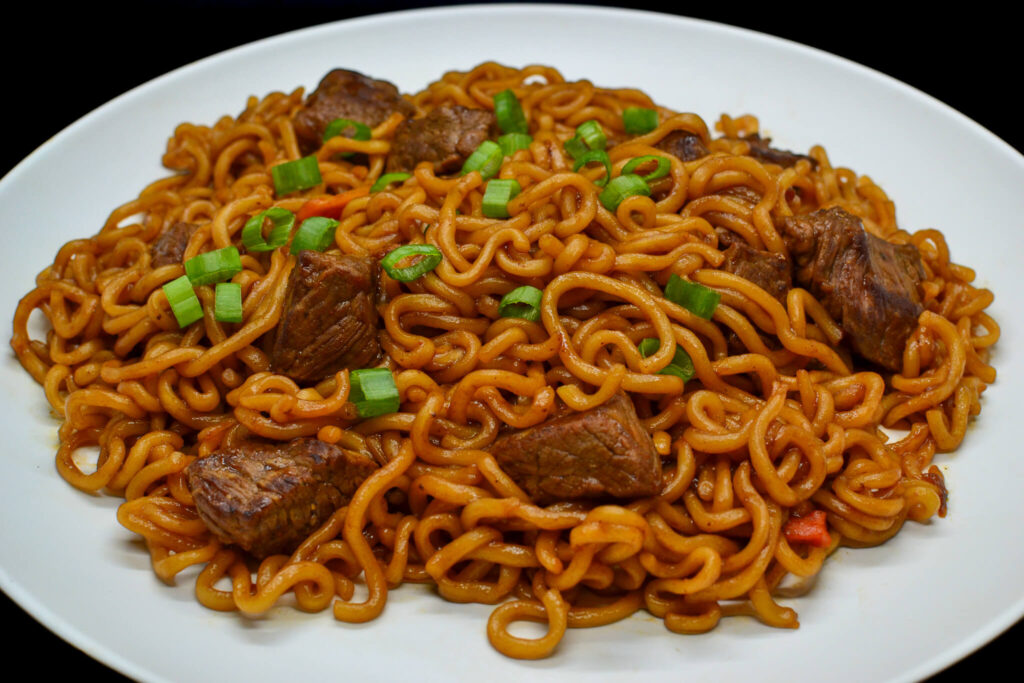
What Is Ram Don?
Jjapaguri, also known as “Chapaguri” or “Ram-don”, is a Korean dish that gained international attention after it was featured in the Academy Award-winning film “Parasite.” It is made by mixing two different types of instant noodles, “Chapagetti” and “Neoguri”, along with a special seasoning mix.
The dish is typically served with various toppings such as beef, vegetables, and egg. The result is a unique and flavorful combination of chewy noodles and savory broth that has become a popular comfort food in Korea and beyond.
Ingredients For Ram Don
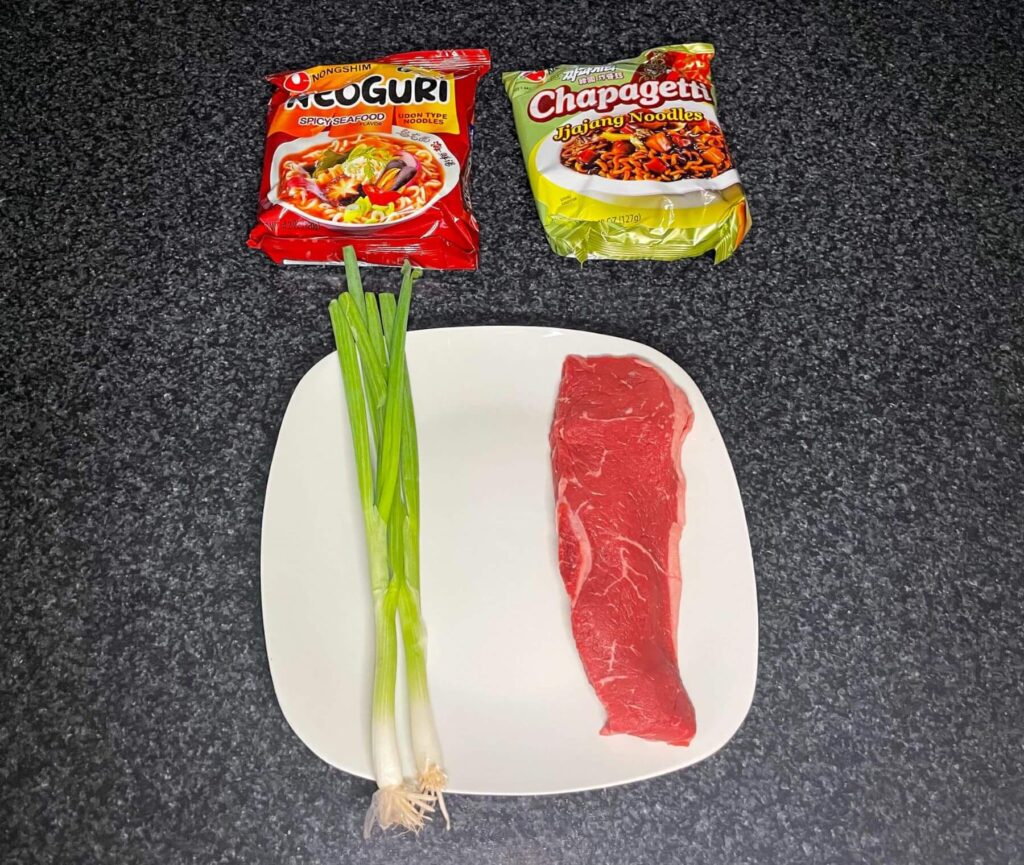

Produce
Scallions (optional)

Grocery
1 Package Chapagetti
1 Package Neoguri

Meat
6oz Sirloin Steak
How To Make Ram Don
Step 1
Cut & Cook Sirloin
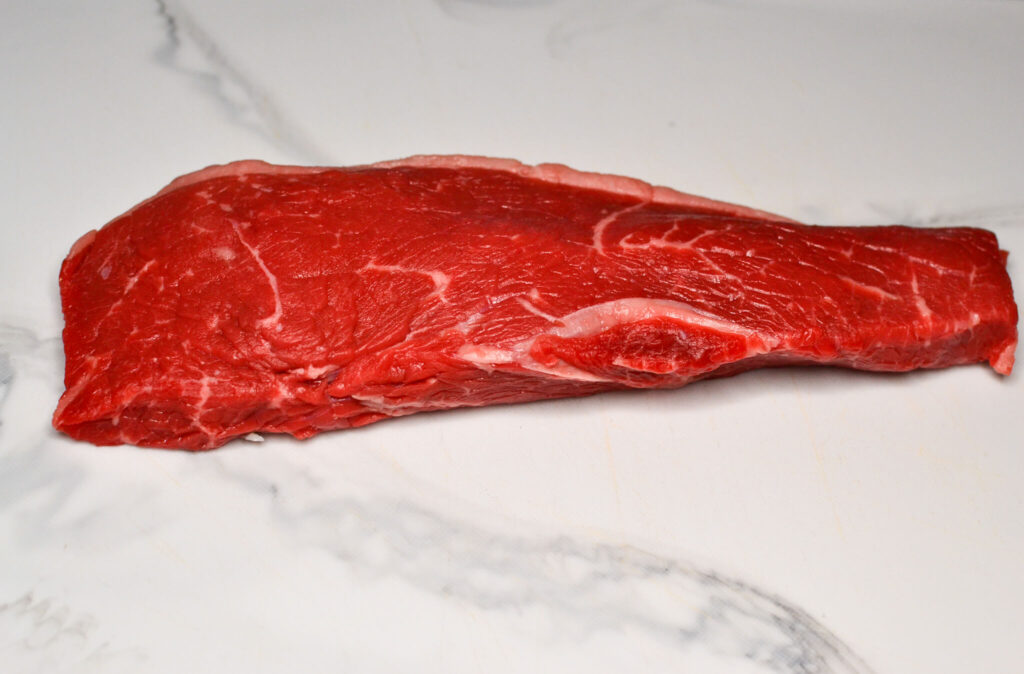
The steak for this ram don recipe uses sirloin steak, which is the cheaper of the steak options.
Sirloin steak is a cut of beef that comes from the rear of the animal, just behind the ribs. It is a leaner and less tender cut compared to other premium cuts like ribeye or filet mignon, but still has good flavor and can be cooked to a delicious medium-rare or medium doneness.
Sirloin steak is relatively inexpensive compared to other premium cuts because it contains less marbling, which is the fat that is distributed throughout the meat. Marbling helps to tenderize the meat and enhance its flavor, and the more marbling a cut has, the more expensive it tends to be. Since sirloin has less marbling, it is typically more affordable, making it a popular choice for budget-conscious consumers who still want a tasty and satisfying steak.
Start by completely drying the steak with a paper towel.
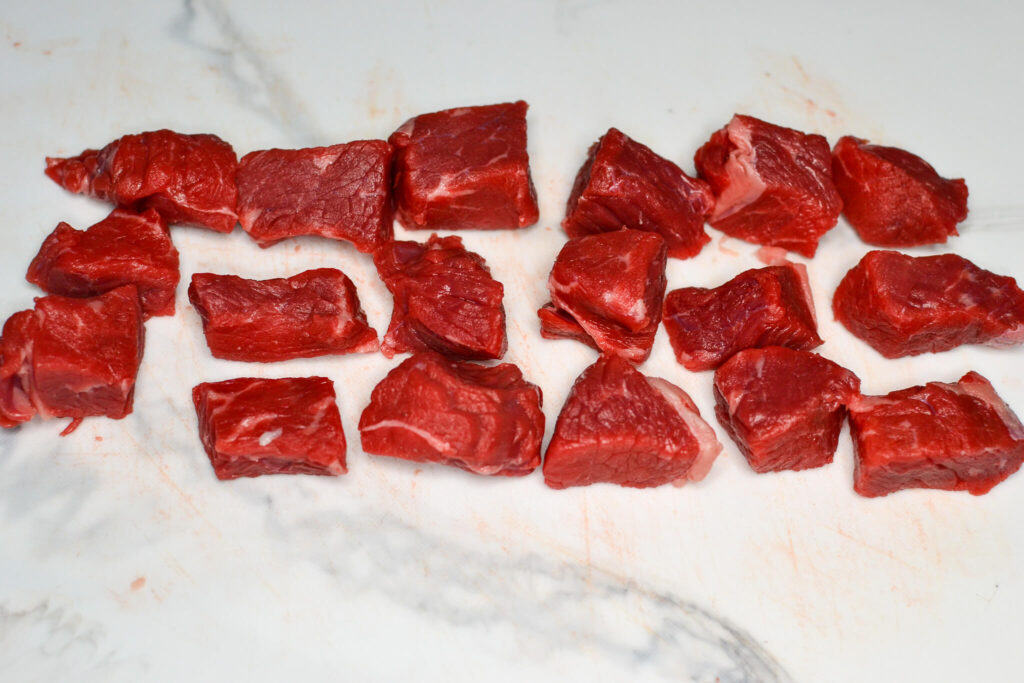
Cutting a steak before and after cooking can have different effects on the texture, juiciness, and overall flavor of the meat.
Cutting a steak before cooking can help it cook more evenly, especially if the steak is thicker or has uneven thickness. This allows the heat to penetrate the meat more evenly, resulting in a more consistent internal temperature and a more tender texture. However, cutting a steak before cooking can also cause the juices to leak out, resulting in a dryer steak with less flavor and tenderness.
On the other hand, cutting a steak after cooking allows the juices to settle and redistribute throughout the meat, resulting in a juicier and more flavorful steak. This is because the juices are trapped inside the meat while it cooks, and cutting the steak releases them. However, cutting a steak after cooking may not be ideal if the steak is too thick, as the heat may not penetrate the center of the steak evenly.
Since this recipe is inspired by the movie Parasite, we’re going to follow how they execute the dish by cutting the sirloin prior to cooking.
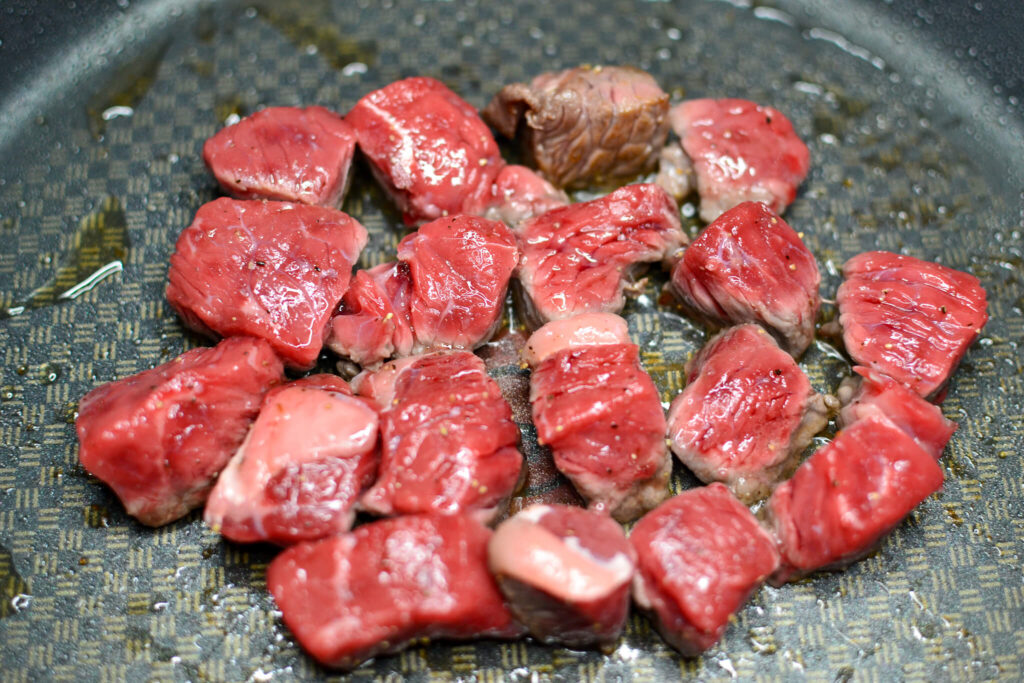
Cook the sirloin in a skillet for about 2 minutes per side.
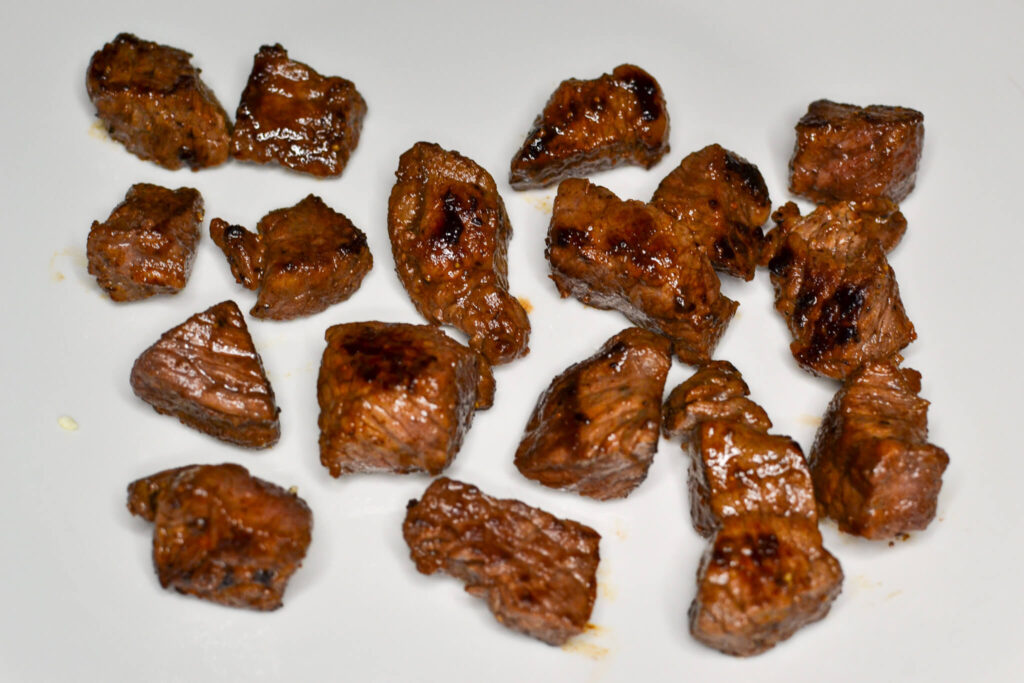
Set the sirloin aside while you make your noodles.
Step 2
Cook Noodles
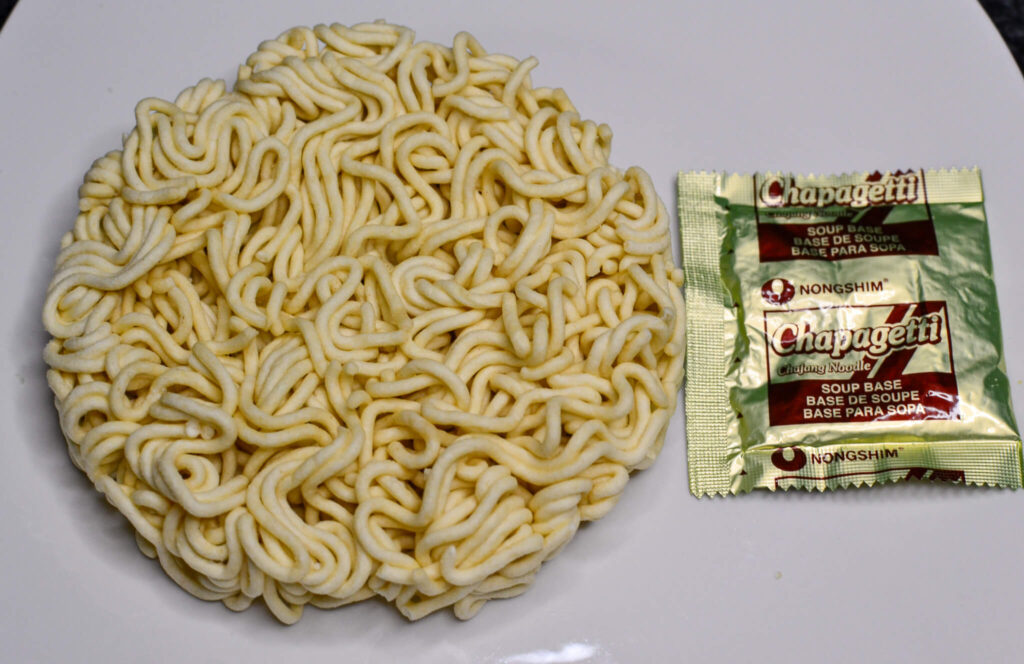
Start by boiling 5 cups of water. While you wait, carefully unpackage your Chapagetti and Neoguri.
Chapagetti is a brand of instant noodles that originated in South Korea. It is a type of jajangmyeon, which is a Korean-Chinese dish consisting of wheat noodles topped with a thick sauce made from black bean paste, vegetables, and sometimes meat.
Chapagetti is a variation of jajangmyeon, made with a more simplified sauce and packaged in a convenient instant noodle form. The sauce is typically savory and slightly sweet, with a distinctive black color from the black bean paste. It has become a popular convenience food in South Korea and is also exported to other countries.
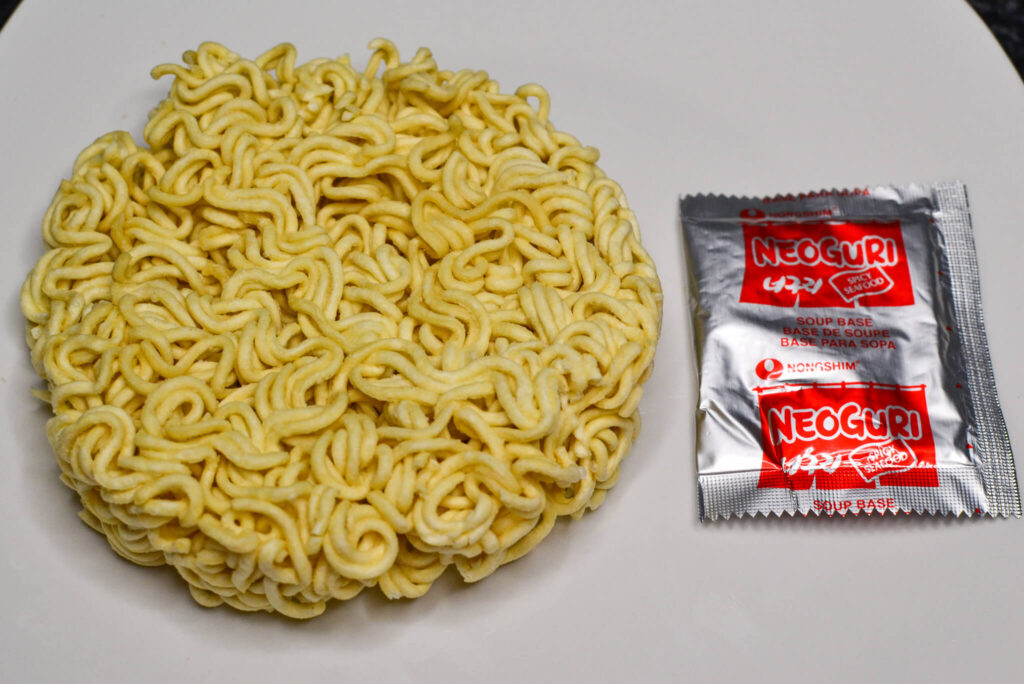
Neoguri is a brand of Korean instant noodles that are typically served in a spicy seafood broth. The noodles are made from wheat flour and are thicker and chewier than other types of instant noodles. The broth is made from a combination of seafood flavors, including anchovy, shrimp, and clam, along with various spices and seasonings.
Neoguri noodles are known for their distinct flavor and are often enjoyed as a quick and convenient meal or snack. The noodles are available in various spice levels, from mild to very spicy, to suit different taste preferences.
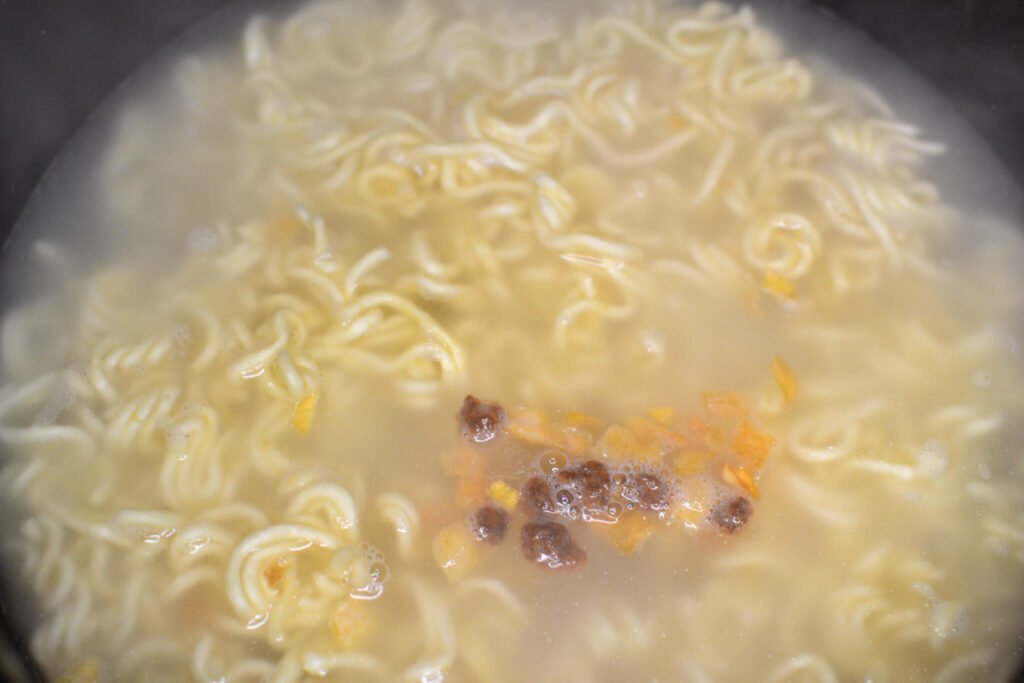
Combine both noodles along with the vegetable mix and cook in boiled water for about 4 minutes.
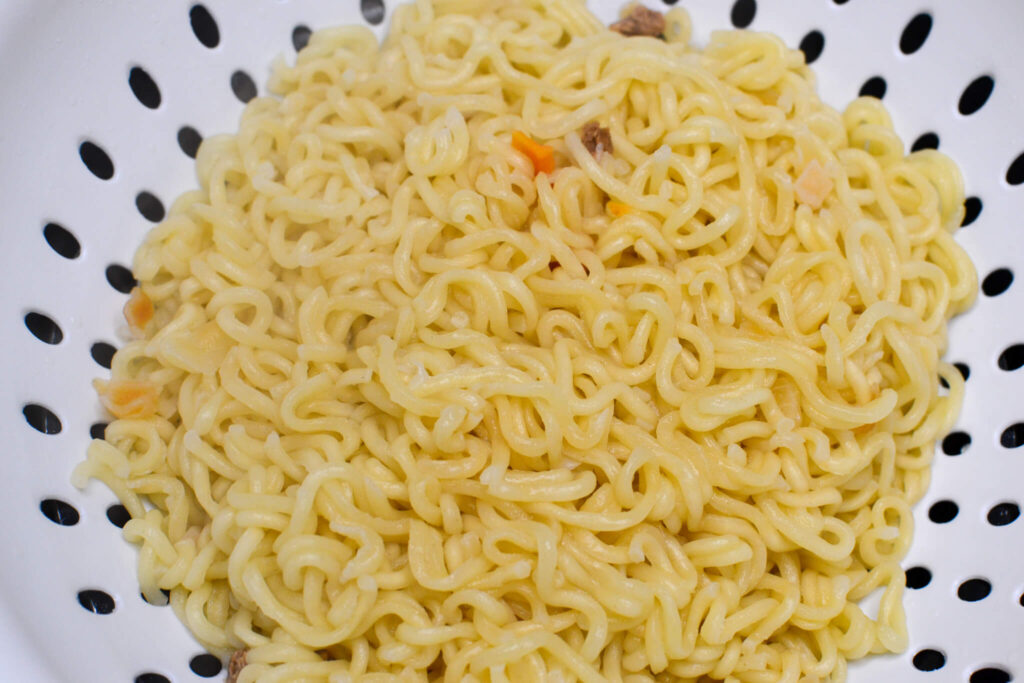
A very important step is to ensure when you strain your noodles to place a bowl underneath to catch the noodle water. This dish is going to need 1 cup of the noodle water to combine in order to create a proper ram don sauce.
Step 3
Add Seasoning, Noodle Water & Steak
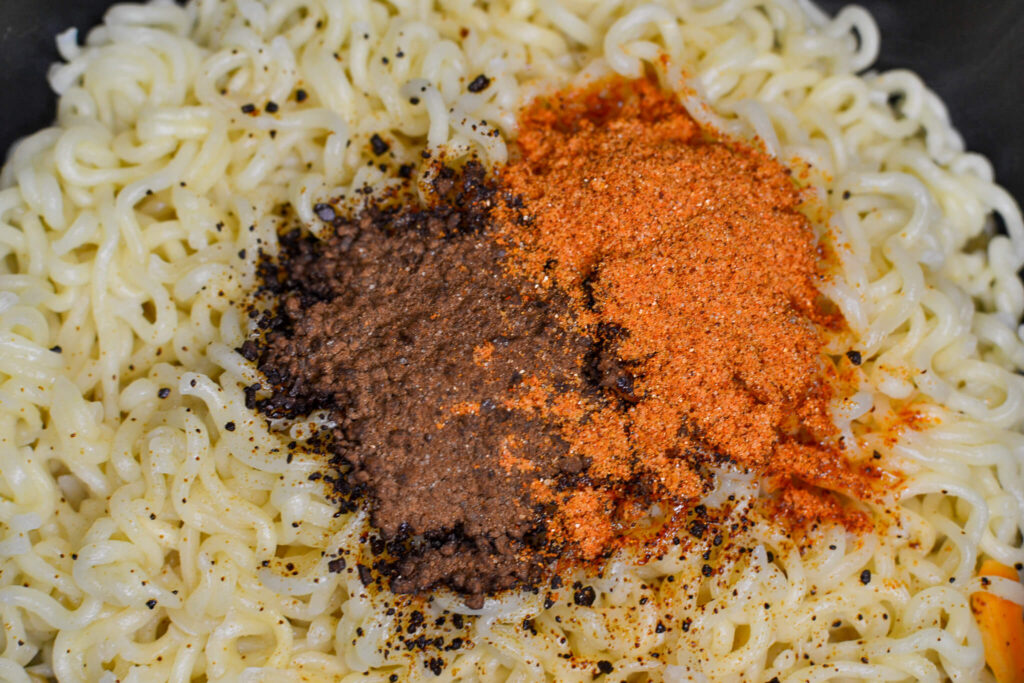
After you’ve strained your noodles and caught the water underneath in a separate bowl, add the noodles back into the cooking pan. In order to properly season this and maintain the best consistency, add:
- The full packet of Chapagetti seasoning mix
- Half the packet of Neoguri seasoning mix
- 1 cup of Noodle Water
Mix thoroughly.
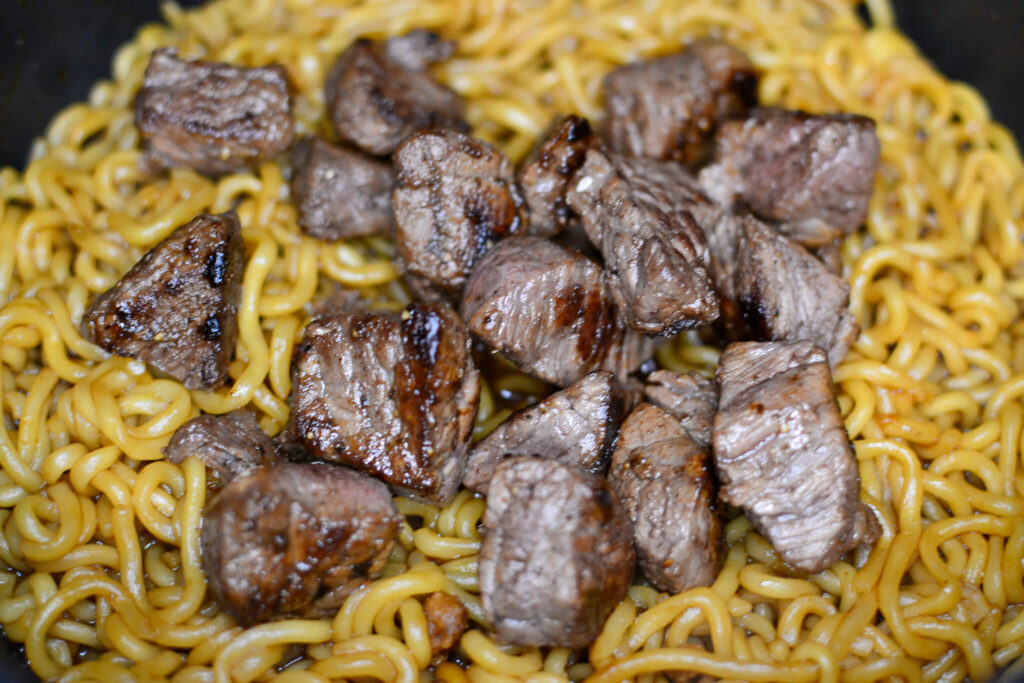
Then, add the sirloin steak and continue mixing until it looks like a cohesive pasta dish.
Step 4
Cut Scallions
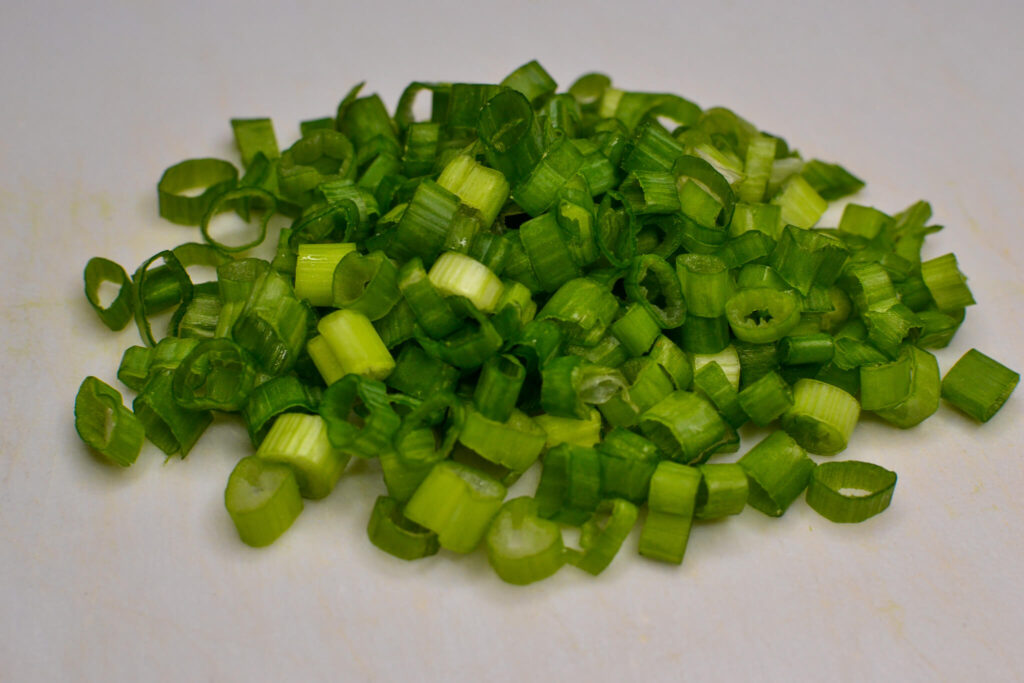
This is an optional step, but it’s always nice to add some greenery to your dish.
Scallions, also known as green onions or spring onions, are a common ingredient in many Asian dishes and offer several benefits. One of the primary benefits is their flavor. Scallions have a mild, sweet onion flavor that can add depth and complexity to dishes without overpowering other flavors. This makes them a versatile ingredient that can be used in a wide variety of dishes, including stir-fries, soups, salads, and more.
In addition to their flavor, scallions are also a nutritious addition to any dish. They are low in calories and high in fiber, vitamins, and minerals, including vitamins C and K, folate, and potassium. This makes them a great way to add flavor and nutrition to dishes without adding excess calories or fat.
Another benefit of scallions is their texture. When cooked, they become tender but still retain some crunch, adding a pleasant textural contrast to dishes. They can also be used as a garnish to add a pop of color and freshness to finished dishes.
Step 5
Enjoy Your Ram Don!

Garnish the ram don with the scallions and enjoy!

Parasite

Inspiration
Yeon Kyo’s Rom Dom Lo Mein

More About Ram Don
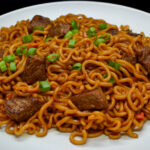
Ram Don
Ingredients
- 1 6oz Sirloin Steak
- 1 packet Chapagetti
- 1 packet Neoguri
- 1 bunch Scallions
Instructions
- Thinly slice the sirloin steak against the grain for maximum tenderness.
- Heat a large skillet over medium-high heat. Cook the sliced steak for about 2 minutes per side until browned and cooked to your desired doneness. Remove from skillet and set aside.
- In a pot, bring 5 cups of water to a boil.
- Carefully open the Chapagetti and Neoguri packages
- Add both noodles to the boiling water along with any vegetable mix included in the packages. Cook for about 4 minutes until the noodles are tender.
- After cooking, strain the noodles using a strainer or colander. Place a bowl underneath to catch 1 cup of the noodle water for the sauce. Set aside the noodles.
- Place the cooked noodles back into the skillet.
- Add the full packet of Chapagetti seasoning mix and half the packet of Neoguri seasoning mix to the noodles.
- Pour in 1 cup of the reserved noodle water and mix thoroughly to create a cohesive sauce.
- Add the cooked sirloin steak to the skillet and stir until the steak is evenly distributed and the dish is well combined.
- Slice scallions thinly and chop if desired for garnish.
- Sprinkle the chopped scallions over the assembled dish for added freshness and flavor.
- Transfer the Ram Don to serving plates, ensuring an even distribution of steak and noodles.
- Optionally, garnish with additional scallions and enjoy your flavorful Ram Don!
While the specific origin of this dish is unclear, it is believed to be a fusion of two popular Korean noodle dishes – jajangmyeon and jjamppong. Jajangmyeon is a Korean-Chinese dish made with wheat noodles and a savory black bean sauce, while jjamppong is a spicy seafood noodle soup.
Jjapaguri is a unique combination of the two, with the savory and slightly sweet flavor of Chapagetti blending with the spicy seafood flavor of Neoguri. The dish has become very popular in South Korea and around the world since the release of “Parasite.”

